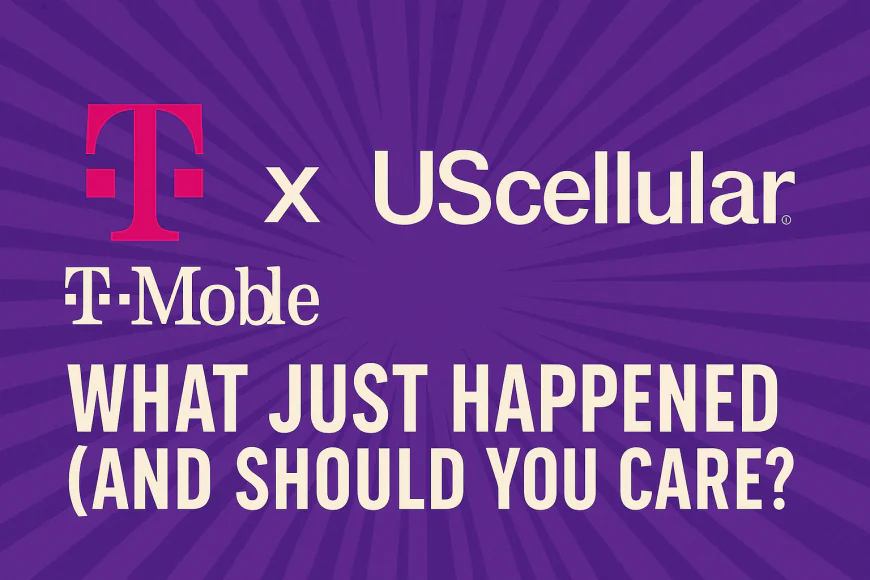📱 The T-Mobile x UScellular Merger: What Just Happened (And Should You Care?)
UScellular built its brand on local service and transparency—so why did the Justice Department let T-Mobile take over? This ADHD-friendly breakdown serves up all the facts, spectrum drama, and subtle corporate shade you need to care.

So… T-Mobile just officially swallowed UScellular whole. If you blinked, don’t worry—the Justice Department was watching closely. After investigating whether this mega-merger would mess up the mobile world, they’ve decided: no lawsuit. But that doesn’t mean everyone’s vibing with it.
Here’s the deal, no jargon attached:
🔍 Why This Merger Matters
-
UScellular was the local underdog. They served rural communities and “Heartland families” with solid coverage and pricing plans built for actual humans—not the faceless “unlimited everything” pitch from the Big 3 (AT&T, Verizon, T-Mobile).
-
The Big 3 already dominate. These three control more than 90% of mobile subscriptions and 80% of the wireless spectrum—that magical airspace that lets our phones work.
-
Losing UScellular means fewer choices. Folks who liked transparency and service that didn’t come from a robot script? They're about to become T-Mobile customers.
📉 But Wait… Is This Merger Actually Good?
Kinda. Kinda not.
-
On the downside, UScellular couldn’t keep up with tech investments and was slowly falling behind. Staying independent would've meant slower networks and a tech nosedive.
-
On the plus side, T-Mobile says it’ll boost data speeds and give rural customers better coverage. So those ex-UScellular folks might get faster internet… but they’ll be giving up that cozy local experience.
🌐 Let’s Talk Spectrum (aka Digital Real Estate)
Spectrum is like land in the cloud—and it’s getting bought up fast. The Justice Department warned that mergers like this make it harder for new wireless companies to rise up and compete. More consolidation means:
-
Less innovation
-
Higher prices
-
Fewer choices
Basically, the Big 3 can now outbid anyone else for future spectrum like rich kids buying beachfront property.
⚖️ Final Verdict:
The DOJ didn’t love the merger—but it didn’t hate it enough to block it. Their logic:
-
UScellular couldn’t thrive solo
-
The merger brings better tech for consumers (maybe)
-
Risks to competition? Real, but not bad enough (yet)
They did leave the door open: if future mergers gobble up more spectrum and squash competitors, they’ll step in. Hopefully before we all have “Unlimited Sadness” plans.
💥 USAYE Take:
This isn’t just a phone company shuffle—it’s another chapter in the book of Big Business consolidation. If you care about transparency, local service, or actual competition, keep your eyes open. The Justice Department may be done for now… but the Big 3 aren’t.
What's Your Reaction?
 Like
0
Like
0
 Dislike
0
Dislike
0
 Love
0
Love
0
 Funny
0
Funny
0
 Angry
0
Angry
0
 Sad
0
Sad
0
 Wow
1
Wow
1
































